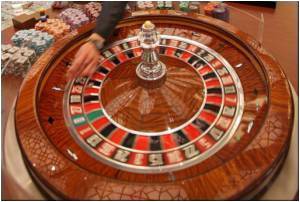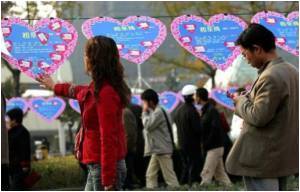
"My biggest hope is that Lebanon will no longer know war," said the 53-year-old from his work station at the Lebanese Institute for the Disabled, where he paints mistletoes and pictures of Saint Nicholas onto tablecloths.
The institute, located in the charming mountain village of Beit Shabab some 24 kilometres (15 miles) east of Beirut, has given Bechara and dozens others the chance to rebuild their lives after the bloody 15-year civil war, which left more than 150,000 dead and thousands missing and maimed.
The war, which initially pitted leftist and Palestinian factions against rightwing Christians, quickly escalated into a free-for-all sectarian bloodbath.
But two decades after the end of the conflict, tensions again grip the tiny Mediterranean country as the UN-backed Special Tribunal for Lebanon (STL), tasked with investigating the 2005 murder of ex-premier Rafiq Hariri, is reportedly ready to implicate the powerful Hezbollah in the assassination.
The STL has been at the centre of a political face-off between Western-backed Prime Minister Saad Hariri, son of Rafiq, and pro-Iranian Hezbollah, which has launched an increasingly heated campaign to fend off any such accusations.
Advertisement
"Art has given me the strength to continue living, to fight in another way," Bechara, who learned to paint in his hospital bed, told AFP.
Advertisement
One, who gave his name only as Jihad, also received a bullet wound to his spine in 1985 while fighting what he says were his "Muslim enemies."
From his wheelchair, he is carving candles shaped like doves to adorn dinner tables around the country this Christmas.
"Crafts have become my weapon," said the gaunt 40-year-old. "Being a craftsman has given me a role to replace the one that I played in combat.
"I do not believe in violence, and I have been trying to compensate through my work those things that I missed out on in life."
The veterans of Beit Shabab are having a good season this year, and sometimes craft up to 100 pieces each a day, which sell for between 20 and 100 dollars (15 to 79 euros) per item.
Their work is on display at Christmas exhibitions across Lebanon and has also featured in fairs in Toronto, as demand for the sentimental work continues to rise.
And in turbulent Lebanon, demand for the little dove-shaped candles, a message of peace, is highest, says Jihad.
Abdo, who has also been bound to his wheelchair since 1983, for his part makes and paints porcelain coffee cups and plates.
"I thought I would die in the four or five months after I was wounded," the 46-year-old told AFP, also requesting that his family name not be used.
"But here, I discovered that life was still worth living."
Marie Khoury, another former combatant who was in charge of a communication centre, looks much older than her 44 years.
And while the paraplegic can barely move her hands, she nonetheless manages to display her paintings of landscapes and gardens with pride.
"It has taught me to dream, taken my mind away from politics and war," she said.
"Violence leads to nothing."
Source-AFP














